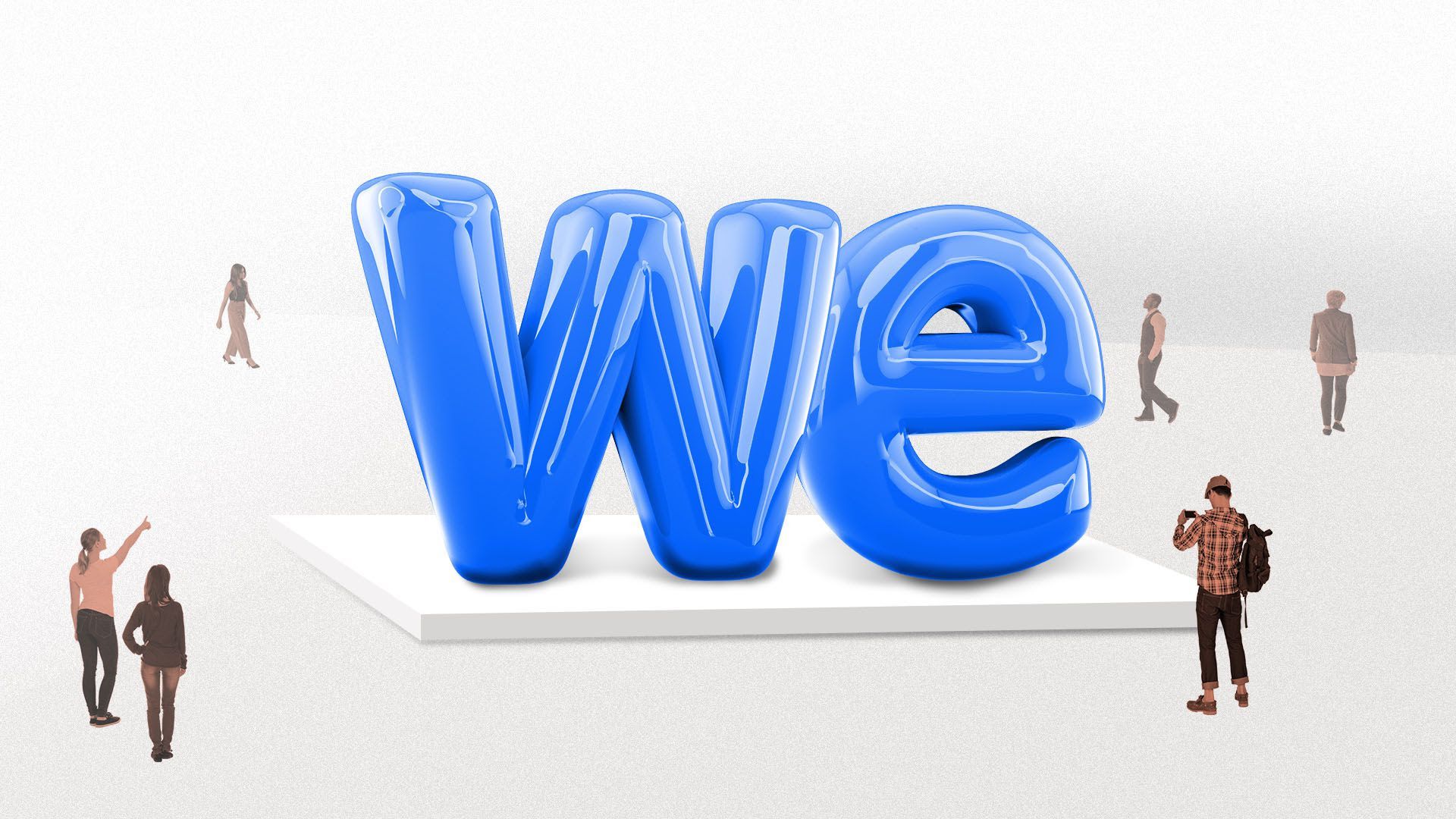WeWork never learned from Jeff Koons
Add Axios as your preferred source to
see more of our stories on Google.

Illustration: Sarah Grillo/Axios
Some flywheels are broken, and can fall apart astonishingly quickly. This week's WeWork news provides a prime example — one that will be very familiar to millionaire pop artist Jeff Koons.
How it works: The flywheel is one of those concepts you come across a lot in business and strategy circles, especially as applied to Amazon. Jeff Haden does a great job of describing the model here, but at heart it's any virtuous cycle.
- Medium has a very simple flywheel, for instance, where readers pay money to writers, who can write more as a result, attracting more paying readers, and so on.
The most dangerous flywheel is one where a rising share price is a core component of the virtuous cycle.
- Many high-flying tech companies, including Amazon and Palantir, use their rising share price as a key talent-retention mechanism. Without it, they find it much harder to attract the qualified engineers they need to continue to grow.
WeWork, however, used its rising share price as much more than just a recruiting tool. Its breakneck growth created enormous losses, and its shareholders were okay with those losses if and only if they were seeing even greater gains in the share price. When the value of a company's shares rises by $10 for every extra $1 it loses, then it's natural for shareholders to want to lose as much money as possible.
- WeWork's erstwhile flywheel: Its rising share price attracts ever-greater investment rounds, which fund ever-greater losses, which fuel ever-faster growth, which feeds back into the rising share price.
The now-scuttled IPO was supposed to be WeWork's biggest investment round of all, which would ratify the company's largest-ever valuation.
- When public market investors balked, the flywheel fell apart. There was no money to cover the company's losses any more — WeWork reportedly couldn't even afford to fire staffers because it didn't have the cash to make severance payments.
- Suddenly, losses were bad rather than good, and the valuation of WeWork crashed, like an electron jumping down a series of energy levels.
Jeff Koons could have told WeWork CEO Adam Neumann what to expect.
- He, too, used the rising values of his work as a key component of his business model, as I explained in 2014. He would sell unmade work, run out of money, and then ask the buyer for more. The buyer would cough up the extra cash just because the secondary-market value of the still-unmade work had risen so much in the interim.
- When the works stopped rising in value, the scheme stopped working. Koons has now laid off most of his staff and faces multiple lawsuits from buyers who haven't received the work they paid for.
The bottom line: There's a fine line between a virtuous cycle and a Ponzi scheme. Whether you're issuing shares or sculptures, it's extremely foolish to count on them appreciating in value whenever you need them to do so.
